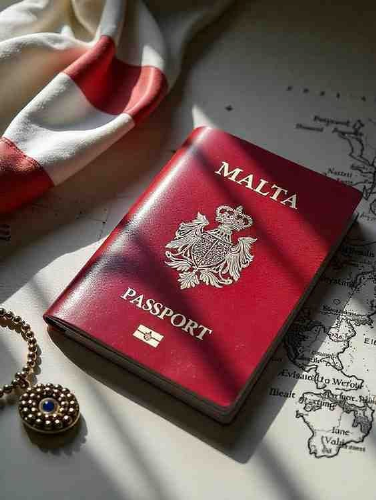
© https://www.visasupdate.com/
Європейська Комісія оголосила про черговий етап юридичних дій проти Мальти через її суперечливу програму надання громадянства в обмін на інвестиції, відому як "золоті паспорти". Питання знову опинилося у центрі уваги після того, як з’ясувалося: попри неодноразові попередження з боку інституцій ЄС, Мальта досі не скасувала цю практику. Офіційно програма має назву Individual Investor Programme (IIP). Вона дозволяє іноземним громадянам отримати мальтійський паспорт — а отже, і повний доступ до прав і свобод громадян ЄС — за умови значного внеску до національного фонду, інвестицій у нерухомість та виконання низки фінансових вимог. Уряд Мальти наполягає, що така ініціатива сприяє економічному зростанню й приваблює іноземні капіталовкладення. Однак критики вважають програму інструментом для легалізації сумнівних статків і уникнення перевірок безпеки, що становить загрозу для всього Європейського Союзу. На думку Єврокомісії, продаж громадянства суперечить принципу добросовісної співпраці між державами-членами та підриває довіру до Шенгенської системи. Саме тому в 2022 році Брюссель передав справу на розгляд Суду ЄС. Хоча після початку повномасштабного вторгнення Росії в Україну Мальта припинила видачу громадянства громадянам Росії та Білорусі, сама програма залишилася чинною для інших країн. Це стало підставою для відновлення юридичного тиску з боку Євросоюзу. За останні роки мальтійським паспортом скористалися понад 2000 осіб, серед яких — громадяни Китаю, Росії та країн Близького Сходу. Як з’ясувалося внаслідок журналістських розслідувань, багато з них фактично не проживали на території Мальти, що ставить під сумнів правомірність надання громадянства. Деякі заявники також фігурували у справах про корупцію або мали зв’язки з авторитарними режимами. У разі, якщо Суд ЄС визнає Мальту винною, країна може бути зобов’язана не лише повністю згорнути програму, а й переглянути вже видані паспорти. Це може створити юридичний прецедент для всіх держав-членів, які раніше мали подібні схеми — зокрема, Кіпру та Болгарії, які вже припинили відповідні практики під тиском Євросоюзу.
EU Launches New Legal Action Against Malta Over ‘Golden Passports’
The European Commission has initiated a new stage of legal proceedings against Malta over its controversial citizenship-by-investment scheme, widely known as the “golden passport” programme. The issue has resurfaced in Brussels after it emerged that, despite repeated warnings from EU institutions, Malta has not yet discontinued the practice. Officially named the Individual Investor Programme (IIP), the scheme allows foreign nationals to acquire Maltese citizenship — and thereby full access to the rights and freedoms of EU citizens — in exchange for significant financial contributions, investments in real estate, and compliance with a range of fiscal requirements. The Maltese government argues that the programme drives economic growth and attracts foreign investment. However, critics see it as a loophole for laundering questionable wealth and circumventing security vetting processes, posing a threat to the integrity of the European Union. The European Commission maintains that the sale of citizenship undermines the principle of sincere cooperation between member states and erodes trust in the Schengen Area. In 2022, the case was referred to the Court of Justice of the EU (CJEU). Although Malta suspended the issuing of passports to Russian and Belarusian nationals following Russia’s full-scale invasion of Ukraine, the broader programme remains in place for applicants from other countries. This has prompted renewed legal pressure from the EU. More than 2,000 individuals have obtained Maltese passports through the scheme in recent years, including nationals of China, Russia, and various Middle Eastern countries. Investigative reporting has revealed that many of them never actually resided in Malta, raising questions over the legality of their naturalisation. Some applicants were also linked to corruption cases or had ties to authoritarian regimes. Should the CJEU rule against Malta, the country could be required not only to terminate the programme entirely but also to reassess previously granted passports. Such a ruling could set a precedent for other EU countries that operated similar schemes in the past — including Cyprus and Bulgaria, both of which discontinued their programmes under EU pressure.
1252